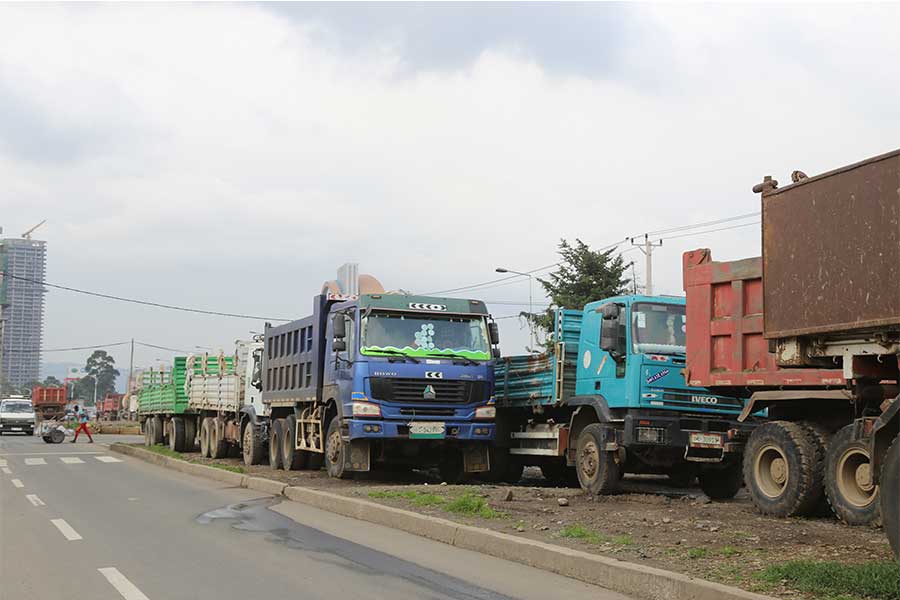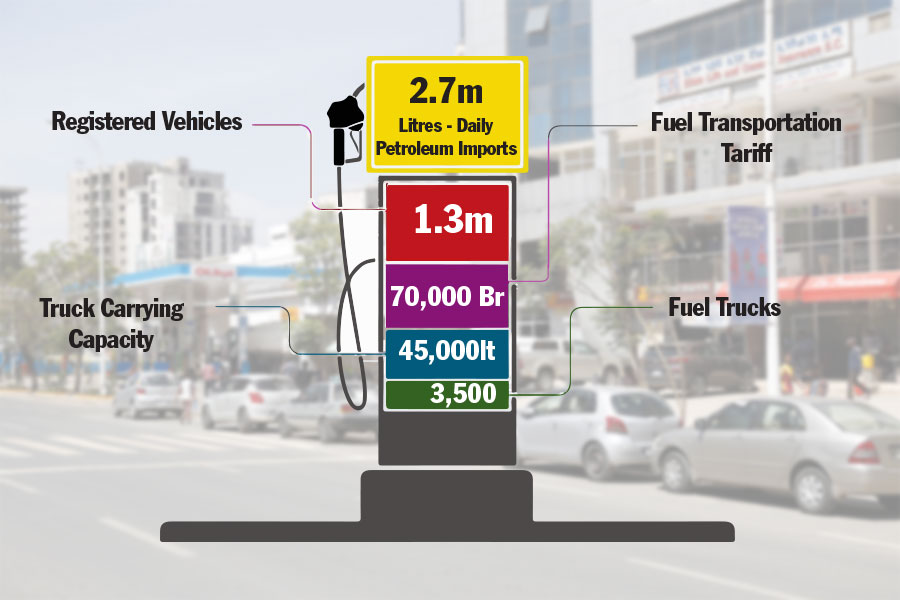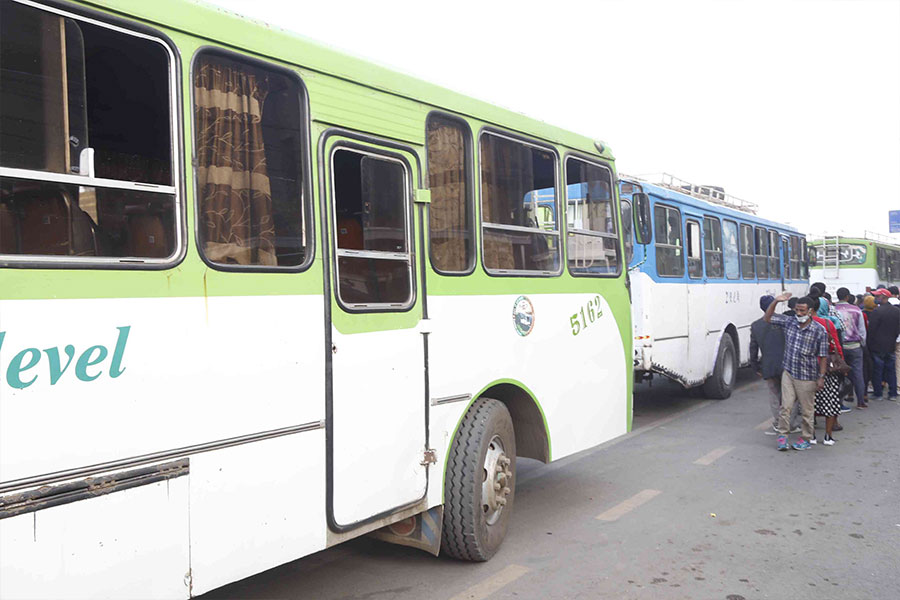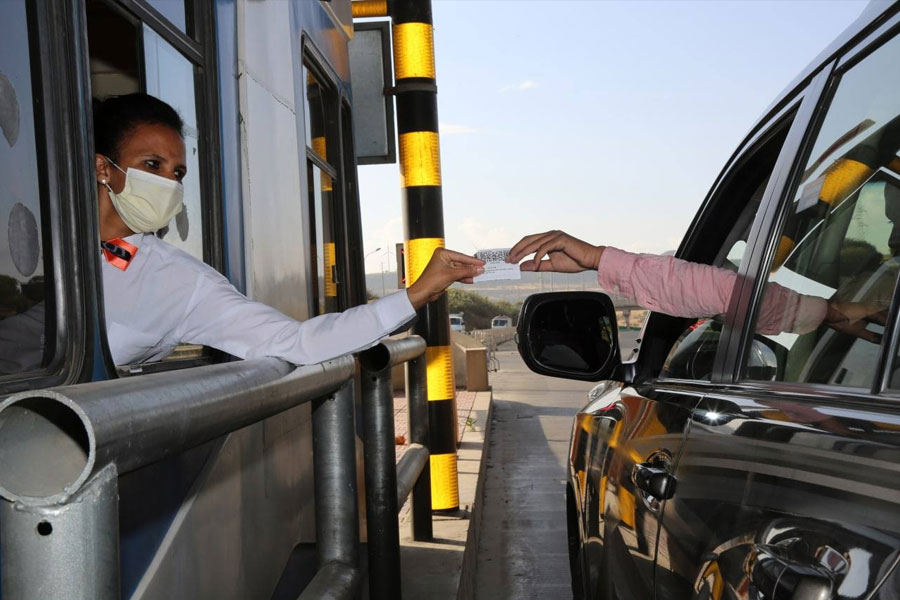
Jul 13 , 2024
By Fanta Tadesse
Alarge number of road traffic crashes can be attributed to human error. Data from the Transport Ministry indicate that drivers are responsible for between 80pc to 85pc of all road crashes, a statistic that fluctuates annually within this range. The high percentage shows the critical role drivers play ensuring road safety.
Recent media reports should serve as a wake-up call, urging for road safety. These reports have chronicled the human toll of road crashes, from lives lost to severe injuries sustained, and the broader societal impacts. They demand immediate and sustained action.
However, the terminology used to report vehicular incidents has recently evolved, reflecting a shift in understanding and responsibility. Previously referred to as "accidents," these incidents are now more accurately termed "road crashes," illustrating that many of these events are not merely unavoidable mishaps but preventable occurrences, contingent on the behaviour and actions of those involved.
The recent surge in media reports of fatal crashes on roads in Ethiopia has demonstrated the need for a more serious and proactive approach to road safety. The contemporary term "road crash" conveys that these incidents are not accidental but result from errors that could have been avoided. The linguistic shift helps to strip away the excuse of inevitability, urging all road users to recognise their role in preventing such tragedies.
Drivers are often the only individuals on the road with formal education about traffic regulations. Pedestrians are not required to understand traffic signs or signals, even though some may learn them through experience. Consequently, the driver is held accountable when a crash occurs due to violating these signs and regulations. Drivers are also responsible for ensuring their vehicles are roadworthy. A car with technical or non-technical issues poses a considerable risk, and the driver has to address these problems before driving. Failure to do so can lead to crashes that are squarely blamed on the driver’s negligence.
In addition to vehicle maintenance, drivers must be in optimal condition to operate their vehicles. Driving requires full control and concentration, and any lapse in these areas can result in crashes. This responsibility extends to adapting to varying road conditions, such as weather changes, road surface irregularities, and other environmental factors that demand heightened attention.
Despite the driver's crucial role, ensuring road safety extends beyond having well-trained and undistracted drivers. It requires a collective effort from all, including pedestrians, policymakers, and infrastructure developers. Everyone has a part to play in making roads safer, thus enhancing mobility and stimulating economic activity.
Following traffic laws is the simplest yet most effective way to improve road safety. This includes adhering to speed limits, using appropriate signals when changing lanes or turning, and making complete stops at intersections. Driving roadworthy vehicles and staying informed about traffic laws are essential measures.
Awareness campaigns on private and public media platforms are a step in the right direction, as are traffic law enforcement and penalties for drivers who violate these regulations. However, education and law enforcement alone are insufficient to curb the high rate of road crashes.
The economic impact of road crashes cannot be overlooked. In developing countries like Ethiopia, the financial burden of these incidents is substantial, diverting resources from other critical areas. Improving road safety is not simply a matter of public health but also an economic imperative. According to the World Health Organization (WHO), these countries lose approximately five percent of their GDP to road traffic crashes. Ethiopia is no exception to this alarming trend.
The road to safer transportation is paved with multiple interventions. While education and enforcement are vital, they must be complemented by infrastructure improvements, technological advancements, and community engagement. Adopting a holistic approach can reduce the incidence of road crashes and their associated costs.
Road crashes are preventable, and their decline depends on a concerted effort from all segments of society. We can make strides towards safer roads by recognising each individual's role and committing to safer practices. This, in turn, will enhance our freedom of movement and strengthen economic activities. We must ensure that our roads are not merely vehicle pathways but safe corridors for all users.
PUBLISHED ON
Jul 13,2024 [ VOL
25 , NO
1263]


Editorial | Jul 09,2022

Viewpoints | Jul 18,2020

View From Arada | Mar 20,2021

Agenda | Jul 20,2019

Fortune News | Feb 12,2022

Letter To Editor | Mar 16,2019

Fortune News | Aug 06,2022

Radar | Jun 29,2025

Fortune News | Jul 17,2022

Fortune News | Nov 12,2022

Photo Gallery | 180466 Views | May 06,2019

Photo Gallery | 170667 Views | Apr 26,2019

Photo Gallery | 161723 Views | Oct 06,2021

My Opinion | 137285 Views | Aug 14,2021

Dec 22 , 2024 . By TIZITA SHEWAFERAW
Charged with transforming colossal state-owned enterprises into modern and competitiv...

Aug 18 , 2024 . By AKSAH ITALO
Although predictable Yonas Zerihun's job in the ride-hailing service is not immune to...

Jul 28 , 2024 . By TIZITA SHEWAFERAW
Unhabitual, perhaps too many, Samuel Gebreyohannes, 38, used to occasionally enjoy a couple of beers at breakfast. However, he recently swit...

Jul 13 , 2024 . By AKSAH ITALO
Investors who rely on tractors, trucks, and field vehicles for commuting, transporting commodities, and f...

Nov 1 , 2025
The National Bank of Ethiopia (NBE) issued a statement two weeks ago that appeared to...

Oct 25 , 2025
The regulatory machinery is on overdrive. In only two years, no fewer than 35 new pro...

Oct 18 , 2025
The political establishment, notably the ruling party and its top brass, has become p...

Oct 11 , 2025
Ladislas Farago, a roving Associated Press (AP) correspondent, arrived in Ethiopia in...

Nov 2 , 2025
The National Bank of Ethiopia (NBE) has scrapped the credit-growth ceiling that had s...

Nov 2 , 2025 . By SURAFEL MULUGETA
The burgeoning data mining industry is struggling with mounting concerns following th...

Nov 2 , 2025 . By YITBAREK GETACHEW
Berhan Bank has chosen a different route in its pursuit of a new headquarters, opting for a transitional building instea...

Nov 2 , 2025 . By BEZAWIT HULUAGER
Nib International Bank S.C. has found itself at the epicentre of a severe governance...